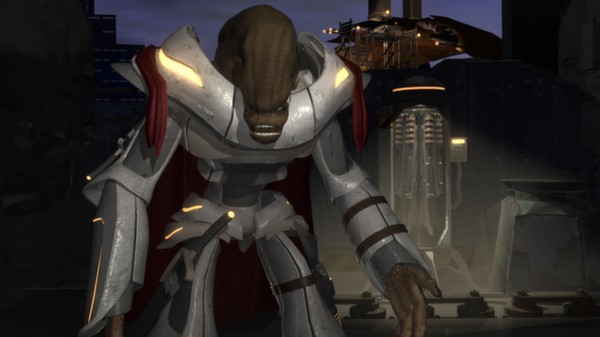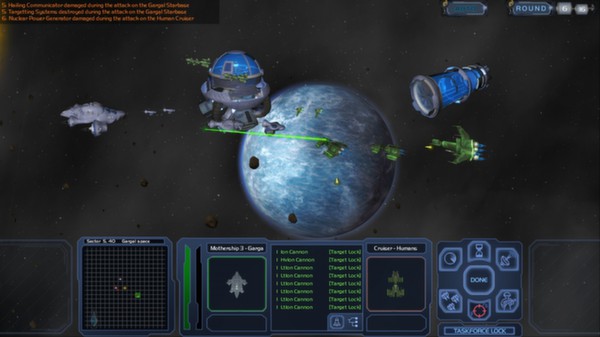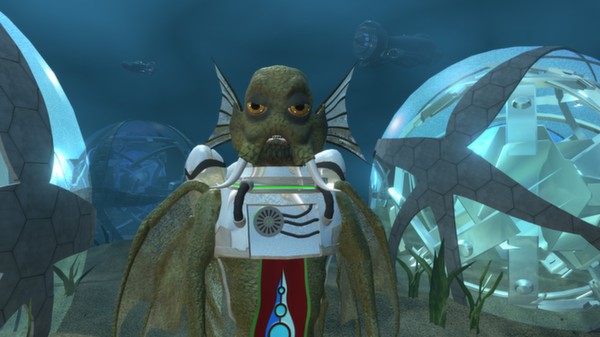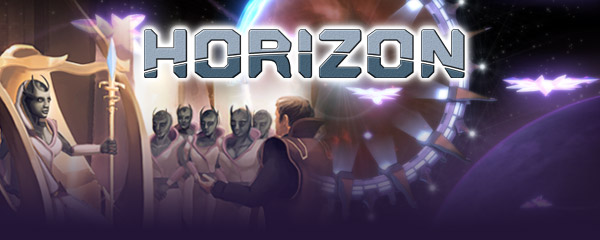Space, the not-so-final-frontier in the world of video games. Games set in space are nothing new, in fact one of the first video games ever made – Spacewar!, created in 1961 by a group of students at theMassachusetts Institute of Technology, for the PDP-1 (a new computer at the time) – was set in space. Right from the start space has been a key component in the land of video games. In recent years different sub-genres have emerged such as Space Flight Simulators like Buzz  Aldrin’s Race into Space and the currently popular Kerbal Space Program, to the ever growing Space Opera genre that’s become very popular in recent years, with games like the Mass Effect Trilogy and Halo taking the gaming world by storm. Thinking about it, some of the most popular games out there are set in space. Mass Effect, Halo, Metroid, Deadspace 2, System Shock 2 and StarCraft to mention a few. It makes sense though; space is the perfect setting for a lot of themes – moving onto better things, creating peace, creating war, finding horror, religion, there is an abundance of options for developers to explore. There is no medium out there that allows exploration like video games, and people are always captured and curious by space, yet most of us will never be able to get there. That’s where games like Horizon take the stage and allow us to explore space in the comfort of our own home.
Aldrin’s Race into Space and the currently popular Kerbal Space Program, to the ever growing Space Opera genre that’s become very popular in recent years, with games like the Mass Effect Trilogy and Halo taking the gaming world by storm. Thinking about it, some of the most popular games out there are set in space. Mass Effect, Halo, Metroid, Deadspace 2, System Shock 2 and StarCraft to mention a few. It makes sense though; space is the perfect setting for a lot of themes – moving onto better things, creating peace, creating war, finding horror, religion, there is an abundance of options for developers to explore. There is no medium out there that allows exploration like video games, and people are always captured and curious by space, yet most of us will never be able to get there. That’s where games like Horizon take the stage and allow us to explore space in the comfort of our own home.
As discussed by the leader of the indie L3O Interactive development team, Raffi Persekhian*, Horizon is a 4X strategy game that focuses heavily on exploration. For those who are unfamiliar with the term, 4X stands for explore, expand, exploit and exterminate, it is a genre of strategy game in which the player controls a kind of empire and goes forth to put in practice the 4X. The empire in this case is the human race – for now anyway. Horizon is currently in Alpha so players can only select the human race  at the moment, however the game suggests that players will be able to play as other races in the final version which is great, it will add a lot of replay value and the opportunity to play the game from a different perspective. Another notable aspect is that Horizon is completely turn based both in combat and on the main map, giving players a lot more control over their ships and in the game overall.
at the moment, however the game suggests that players will be able to play as other races in the final version which is great, it will add a lot of replay value and the opportunity to play the game from a different perspective. Another notable aspect is that Horizon is completely turn based both in combat and on the main map, giving players a lot more control over their ships and in the game overall.
The story of Horizon is that in 2020, a probe was found at the edge of our universe that contained a message from a species called Kortahz, this message explained that the Kortahz were created by beings called Varians whom created the Kortahz in an attempt to create a companion race. The Kortahz did not meet the Varians expectations and so they tried to destroy the Kortahz. The Kortahz fled and began to spread life which intrigued the Varias so they just watched this happen. The message was sent to warn all sentient beings to be wary of the Varians. The game then skips forward to the year 2151, humans have now developed interstellar travel thanks to the data collected from the probe. You, the player, are now in charge of the human fleet and your first mission is to get people to the probe, which has now drifted to Pluto, in order to retrieve more information. Quite long winded right? Well, as long winded as it is it certainly sets the moods for the rest of the game – very serious, in-depth and exploration focused. There is a lot of reading to do in  this game which isn’t particularly a bad thing; however for players new to the genre it may feel a bit overwhelming so you may want to take your time to get to learn everything, play through the beginning of the game a few times until you’ve got the hang of it.
this game which isn’t particularly a bad thing; however for players new to the genre it may feel a bit overwhelming so you may want to take your time to get to learn everything, play through the beginning of the game a few times until you’ve got the hang of it.
Once players have completed reading the background story they will be met with a rather unappealing user interface that’s unnecessarily big, taking up more screen than it needs to. Windows often overlap and get in the way of the main map, in particular the journal windows, so perhaps if it was a little smaller it would be more appealing. This may sound like a small issue but in a game like Horizon an appealing user interface is a necessity since that’s what players will be navigating around for the entire game. The main map is fine though, very simply laid out into a grid making it easy for the players to navigate their ships to different sectors. Visually the map is a little lacklustre but again this is possibly due to keeping simplicity as a focus to allow easier navigation for the player. Players will not always be looking at the map as Horizon has a Tactical Combat View which takes place when exploring the orbit of a planet and when players need to attack or board ships. During the combat view players can manually click on their ships to direct it where to go, what to attack or whether the ship should send people to board another ship. To keep to the turn based nature of the  game during the combat view players will have 20 turns to play with, making the switch between the map and combat view smooth and seamless keeping the player in full control at all times.
game during the combat view players will have 20 turns to play with, making the switch between the map and combat view smooth and seamless keeping the player in full control at all times.
Of course no space exploration game would be complete without the ability for players to manage their own ships. There are already standard ships laid out for players to modify which vary from small, medium, large to huge. Each ship takes a certain amount of turns to build and has their own use, for examples in the tutorial small ships are used for exploring and attacking small ships, and medium ships are used to carry people. Players can change what the features of a ship are, for example do you want assault shuttles or a cargo hold. Players may choose a couple of features but only if the ship has enough space, so combining this with the fact that ships take a certain amount of turns to build, players will have to think tactically about what they select and what they need. Giving your ships assault shuttles will allow passengers to board other ships which may lead to discoveries such as new BioTechnology – this will help you understand alien species and culture which will be useful during diplomacy and war.
Excluding humans there are ten races in total, which range from the Gargal who are aquatic creatures that have only just developed interstellar travel, the Kamzak which have developed an advanced matriarchal society, and the Varians which are believed to be beings of pure energy that spend their time studying new races. The designs of the different races are varied which adds to the whole feel of diplomacy, some races look like fish, some like fleas, some are very humanoid and others are mad out of stone, everyone is very different so different races will clash, there will have to be compromise (or not!).
The music in Horizon is great, it suits the game concept perfectly. It’s atmospheric, it never becomes annoying nor is it catchy – just what is needed for a game that requires lots of concentration, thought and is very in-depth. Horizon in general is looking to be a great game for those who are a fan of 4X games, or who are interested in starting playing them. It’s rather overwhelming at first but with a bit of practice it becomes second nature, then you’re free to explore space and create relationships, good or bad, with different species. Horizon is currently £14.99 on Steam for the early access version of the game, which by the way has little to no bugs – very impressive! For a game with such depth £14.99 is a great price, if you have the spare cash and enjoy a good 4X game with great atmosphere then support these great indie devs and buy it.
Purchase Horizon on Steam for an early admission price of $18.99 and get immediate access to play the game in its current form HERE: store.steampowered.com/app/236130/








You must be logged in to post a comment.